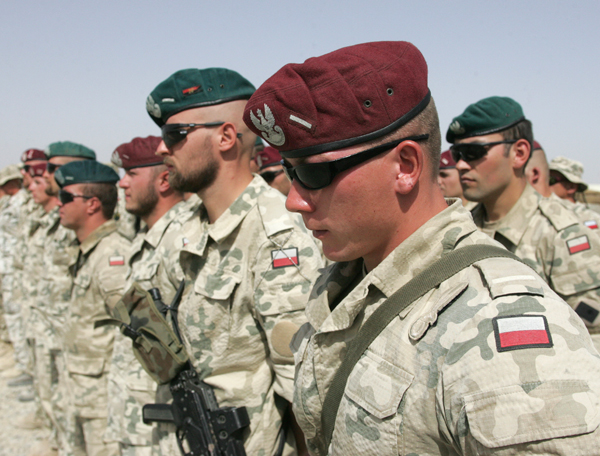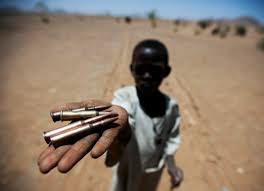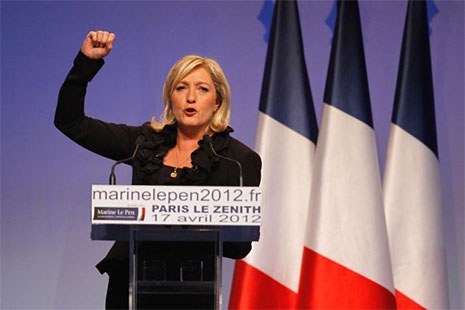While a number of states have renewed their commitment to the NATO-led mission in Afghanistan beyond 2014, one that is preparing to withdraw its military presence is Poland. The next rotation of Polish soldiers in Afghanistan, set to occur this fall, is slated to be the last large contingent sent before withdrawing its servicemen and women from the country. Poland has been steadily decreasing its soldiers and personnel from Afghanistan, as the current rotation consists of 1,800 troops, and the one before included 2,500.
In light of Poland’s moving away from involvement in Afghanistan, NATO has shown itself to be highly grateful for Poland’s aid in NATO-led operations. During a recent visit to Poland, NATO Secretary General Anders Fogh Rasmussen thanked Poland for its “dedication and courage” in various allied operations such as the NATO-led mission in Afghanistan. He told a press conference he wanted to pay tribute to the Polish troops for their “courage and sacrifice” as well as helping to build “a strong NATO and strong Europe.”
[captionpix align=”left” theme=”elegant” width=”250″ imgsrc=”http://natoassociation.ca/wp-content/uploads/2013/08/poland2-e1375470749119.jpg” captiontext=”Polish President Bronislaw Komorowski at a joint NATO press conference, 2010″]
Polish forces have been present in Afghanistan for over ten years, and have been largely conducting security operations in Ghazni province since 2008. The hope is that the Afghan army will resume control of the territory during the current Polish rotation, which will see the Polish military moving away from smaller bases scattered around the region and into the province’s capital city of Ghazni.
Since the NATO Chicago Summit in May 2012, which oversaw NATO-member countries agree on the framework to downsize the mission in Afghanistan from combat-based towards a support role in advising, training, and assisting Afghan security forces, Poland has been following suit. Once the troops scattered around Ghazni province have been moved to the provincial capital, the Polish military will no longer be sent on combat patrol missions and only assist local forces with medical services and will provide air and artillery support if needed. Afghan soldiers will soon take over patrolling a crucial 140km-long road between Kabul and Kandahar, which has been the subject of numerous terrorist attacks. By the end of 2014, Poland aims to have all of its troops withdrawn from Afghanistan.
Polish soldiers have not been spared from violence in Afghanistan. On June 25th, four US-commanded Polish soldiers were killed and two were wounded following a roadside bomb blast targeting their vehicle in Ghazni province. With the rising death toll of US-led foreign forces in Afghanistan, opposition to the Afghan war has steadily increased among NATO member states and other countries that have contributed troops to the mission.
Polish involvement in both Afghanistan and Iraq has proven to be highly unpopular amongst Poles. According to estimates from Poland’s Ministry of Defense, this year the Polish contribution in Afghanistan will cost 508.9 million złoty ($164.33 million CAD), with the upcoming shift costing some 177 million złoty ($57.15 million CAD). In spite of this, a significant portion of Poland’s political establishment has argued that the country’s active role in these conflicts have enhanced its prestige and significance, making it an international player rather than just a passive observer.
Polish participation in Afghanistan came very soon after achieving NATO membership in 1999. From its involvement in Afghanistan, Poland was able to solidify its dedication to the organization and other member states. In Ghazi Province, the Republic of Poland worked alongside the Illinois National Guard in stabilizing the region.
“What we tried to do was take those eastern European nations that were formally part of the Warsaw Pact and bring them closer to the west and eventually integrate them into NATO, which we’ve successfully done,” Noted U.S. Rep. Bill Enyart of Illinois, former adjutant general of the Illinois National Guard.
Following cooperation with the U.S. in military operations in Central Asia, Poland has been able to expand its training with the international community at home, such as at the Lask Air Base. “Poland is a pretty new NATO player,” said U.S. Air Force Capt. Brad Zimmerman, 510th Fighter Squadron from Aviano Air Base, Italy. “And this training adds validity to our posture. The NATO alliance would lack credibility if the partners never practiced or worked together. Building relationships, like what we’re doing with this training, ensures we are a reliable force against aggressors.”
Given the aforementioned occurrences, Poland exiting Afghanistan should not be understood as a sign of Poland’s withdrawing from NATO-led initiatives, but as emphasizing the fact that it is entering a new stage in its cooperation with the organization. This signifies a greater cooperation between Poland and the international community in affairs concerning global security.




